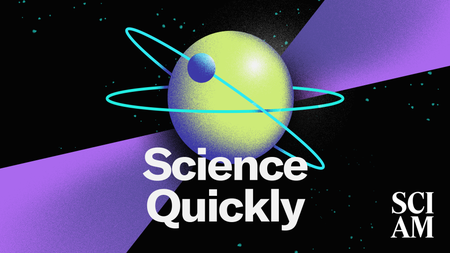
AI Could Broaden the Applications of Entertaining Drone Shows
AI can allow engineers to focus on artistry over technical details for drone shows
Jeffery DelViscio is currently chief multimedia editor/executive producer at Scientific American. He is former director of multimedia at STAT, where he oversaw all visual, audio and interactive journalism. Before that he spent more than eight years at the New York Times, where he worked on five different desks across the paper. He holds dual master's degrees in journalism and in Earth and environmental sciences from Columbia University. He has worked onboard oceanographic research vessels and tracked money and politics in science from Washington, D.C. He was a Knight Science Journalism Fellow at the Massachusetts Institute of Technology in 2018. His work has won numerous awards, including two News and Documentary Emmy Awards.

AI Could Broaden the Applications of Entertaining Drone Shows
AI can allow engineers to focus on artistry over technical details for drone shows
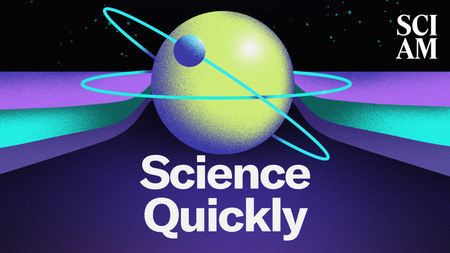
Talking to the Host of Drilled about the Legal Battles around Standing Rock
Energy Transfer, the company behind the Dakota Access Pipeline, sued the nonprofit Greenpeace over alleged conspiracy—the host of Drilled explains why
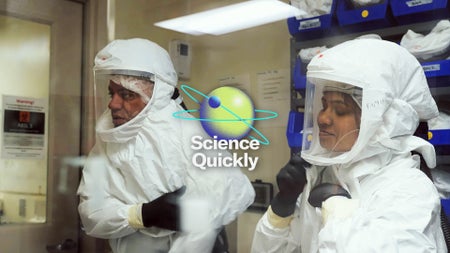
This is How We Fight Bird Flu If H5N1 Becomes the Next Human Pandemic
This San Antonio, Tex., lab takes biosecurity seriously. Suit up with its scientists and go behind the scenes of the science of vaccine creation.
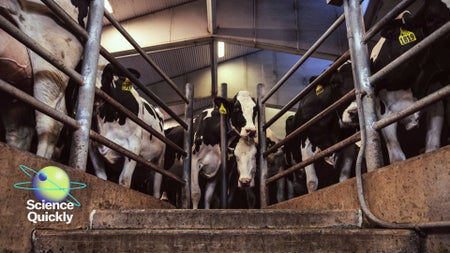
Why Dairy Farmers Were Surprised by Bird Flu Cases in Their Herds
The bird flu was long known to poultry farmers. Here’s why the dairy industry was caught off guard by its jump to cattle.
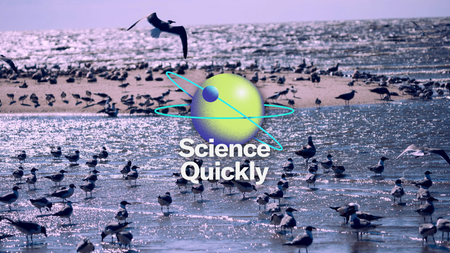
How Bird Flu Became a Human Pandemic Threat
The first hints that a new strain of avian illness is emerging could be found on this beach on Delaware Bay, where migrating birds flock. Here’s what virus detectives who return there every year know right now.
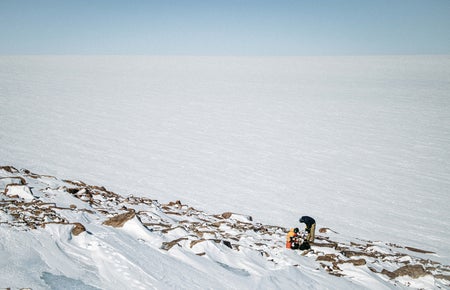
What Greenland’s Ancient Past Reveals about Its Fragile Future
The collapse of the world’s second-largest ice sheet would drown cities worldwide. Is that ice more vulnerable than we know?
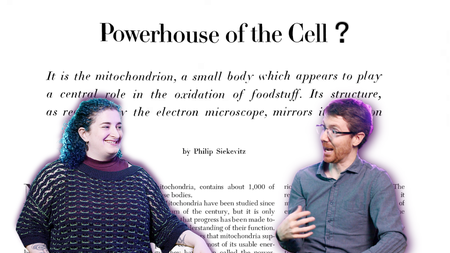
Could Mitochondria Be Rewriting the Rules of Biology?
New discoveries about mitochondria could reshape how we understand the body’s response to stress, aging and illness

Accidental Alchemy, Flamingo Food Tornado, and Kosmos-482 Lands
Kosmos-482 crash-lands, physicists turn lead to gold and animals show some clever behaviors.
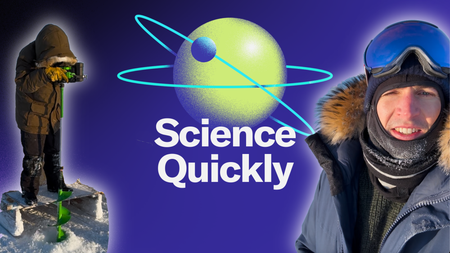
Polar Geoengineering Experiments Bet Big on Freezing Arctic Ice
Refreezing the melting sea ice in the Arctic is more complicated than you would think. The U.K. is funding geoengineering experiments like this one to curb the effects of climate change.
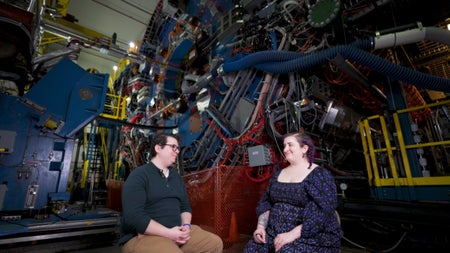
The Only Particle Collider in the U.S. Will Be Replaced with an Upgrade
Brookhaven National Laboratory is pushing the boundaries of particle physics.
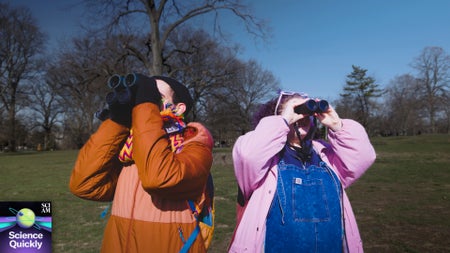
How to Find Hidden Nature in Any Urban Park Near You
Take a walk through Prospect Park with Wild NYC writer Ryan Mandelbaum and learn to connect with nature no matter how urban your environment is.
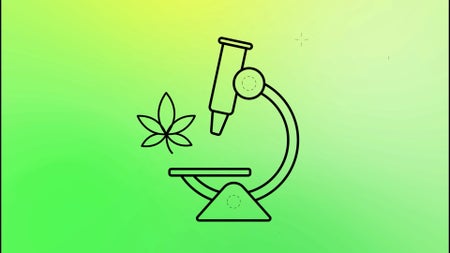
How the THC in Weed Affects Your Brain
Most people know weed gets you high—but do you know how THC actually does it?
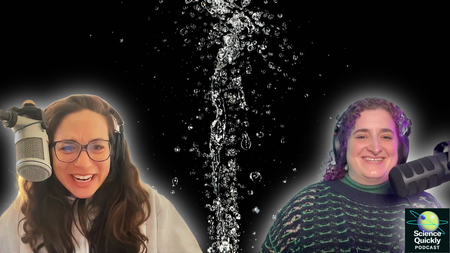
Unpacking the Mystery of Squirting: What Science Really Says
A mysterious and often debated aspect of human sexuality colloquially known as “squirting” sparks controversy. This episode explores what research reveals.
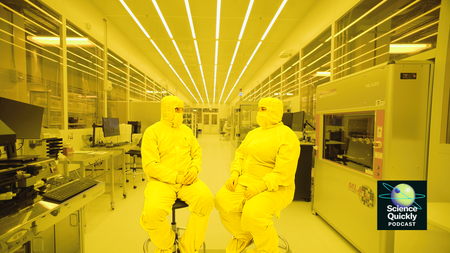
There’s Nothing Small about this Nanoscale Research
We’re taking you inside MIT.nano, a clean laboratory facility that is critical to nanoscale research, from microelectronics to medical nanotechnology.
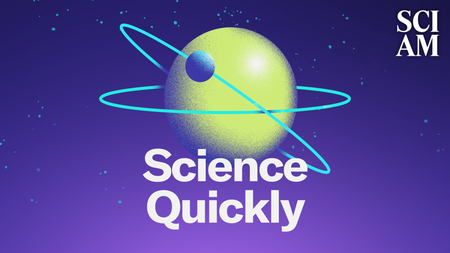
Robotics Researchers Bring The Electric State’s Cosmo to Life
A robotics researcher takes on the Russo brothers’ vision from the new movie The Electric State.

On COVID’s Fifth Anniversary, the U.S. Remains Vulnerable to Infectious Disease
On COVID’s fifth anniversary, the U.S. is facing an outbreak of tuberculosis in Kansas that makes strong public health systems as important as ever.

Saying Farewell to the Gaia Mission, Which Mapped the Milky Way
We look back on about 11 years of the Gaia spacecraft, now at the end of its mission to create the best map of the Milky Way.

Where Did Curly Hair Come From? Biological Anthropology May Provide Insights
Humans have a surprising lack of hair for mammals. Biological anthropology may provide insights into why the hair we have sometimes comes out curly.

The Air around Us Is Full of Life
Journalist Carl Zimmer chats about aerobiology and his new book Air-Borne: The Hidden History of the Life We Breathe.

When It Comes to Impending Asteroid 2024 YR4, Risk of Impact Is a Wait-and-See Question
News of an asteroid with a 2 percent chance of hitting Earth in 2032 made headlines. But is its fluctuating risk really cause for concern?

Why 2025 Is an Exciting Year in Heliophysics
From space weather to science missions, there’s a lot to be excited about in heliophysics this year.

What Happens to the Open Internet without Net Neutrality?
A U.S. federal court struck down the FCC’s enforcement of net neutrality. What does that mean for Internet users?

Mishandled Response to the Bird Flu Leaves U.S. Vulnerable to Outbreak
The U.S. government lost control of the bird flu because of a sluggish response and deference to industry.

A Death from Bird Flu, a Cosmic Kiss and Wildfires in L.A.
In this week’s news rundown, norovirus cases are up, a bird flu death is reported and Los Angeles has experienced devastating fires.